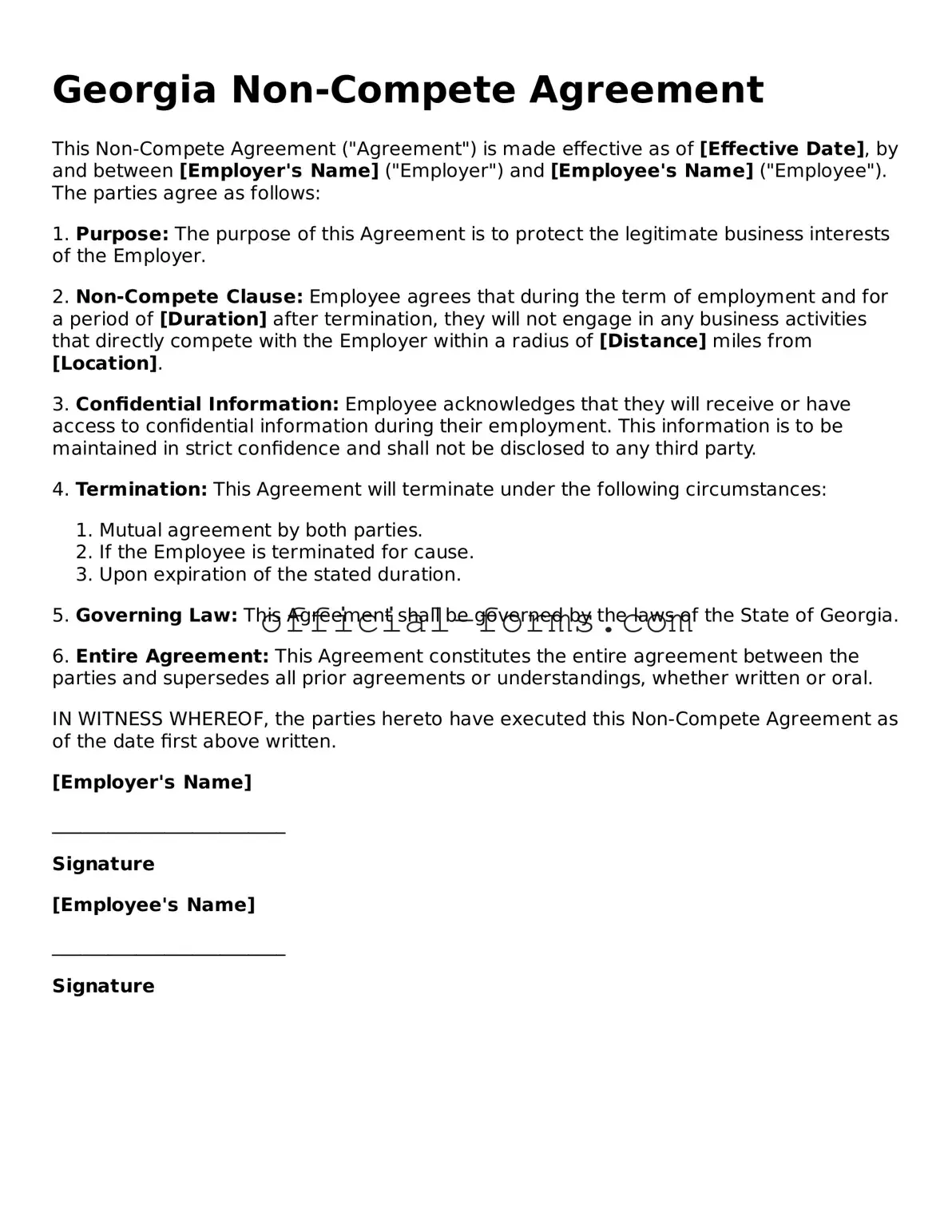Official Georgia Non-compete Agreement Document
A Georgia Non-compete Agreement form is a legal document that restricts an employee from working for a competitor or starting a similar business for a certain period after leaving their job. These agreements aim to protect a company's trade secrets and maintain its competitive edge. Understanding the terms and implications of this form is essential for both employers and employees.
Open My Non-compete Agreement Now

Official Georgia Non-compete Agreement Document
Open My Non-compete Agreement Now
Don’t leave your form incomplete
Finish Non-compete Agreement online quickly from start to download.
Open My Non-compete Agreement Now
or
➤ PDF
